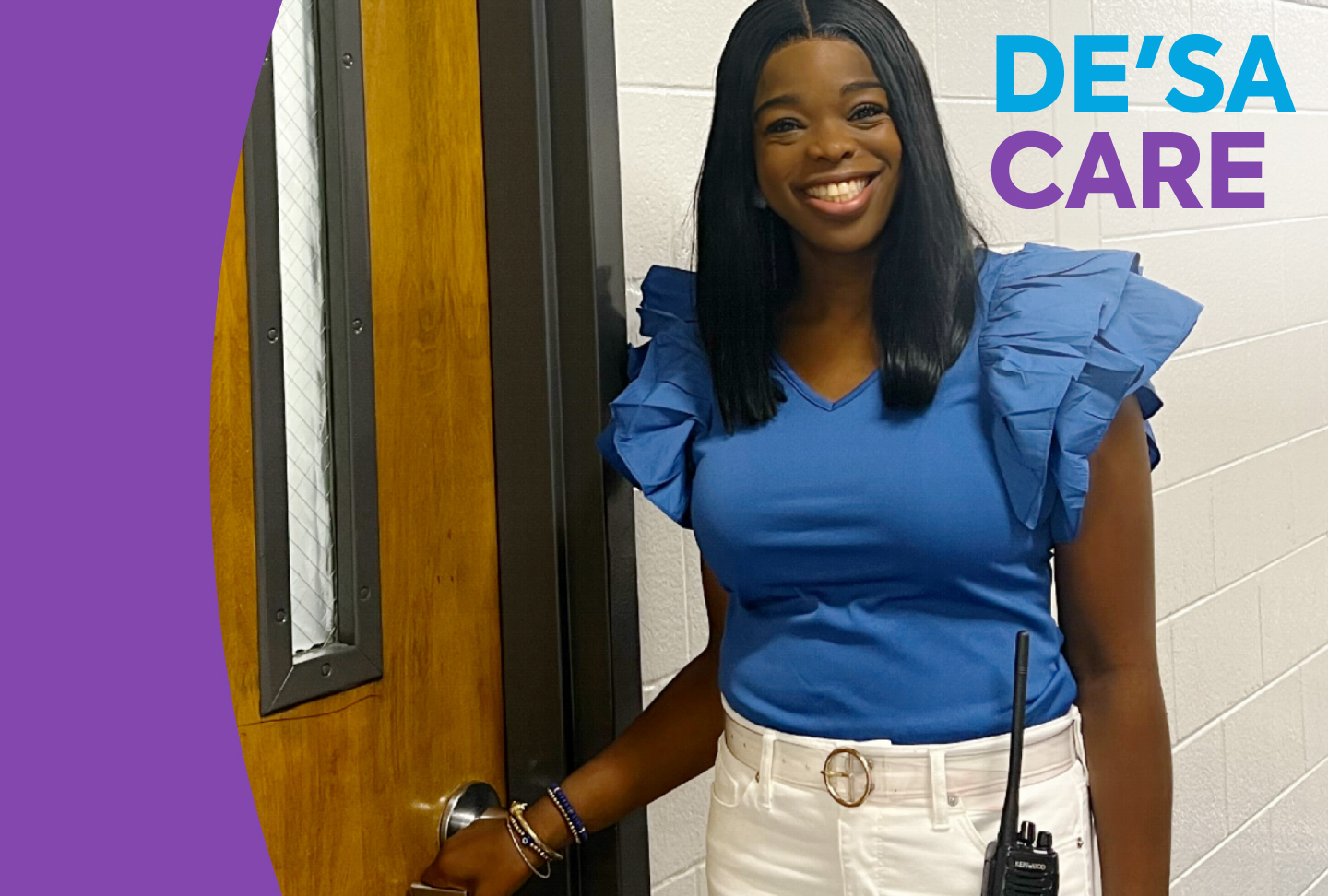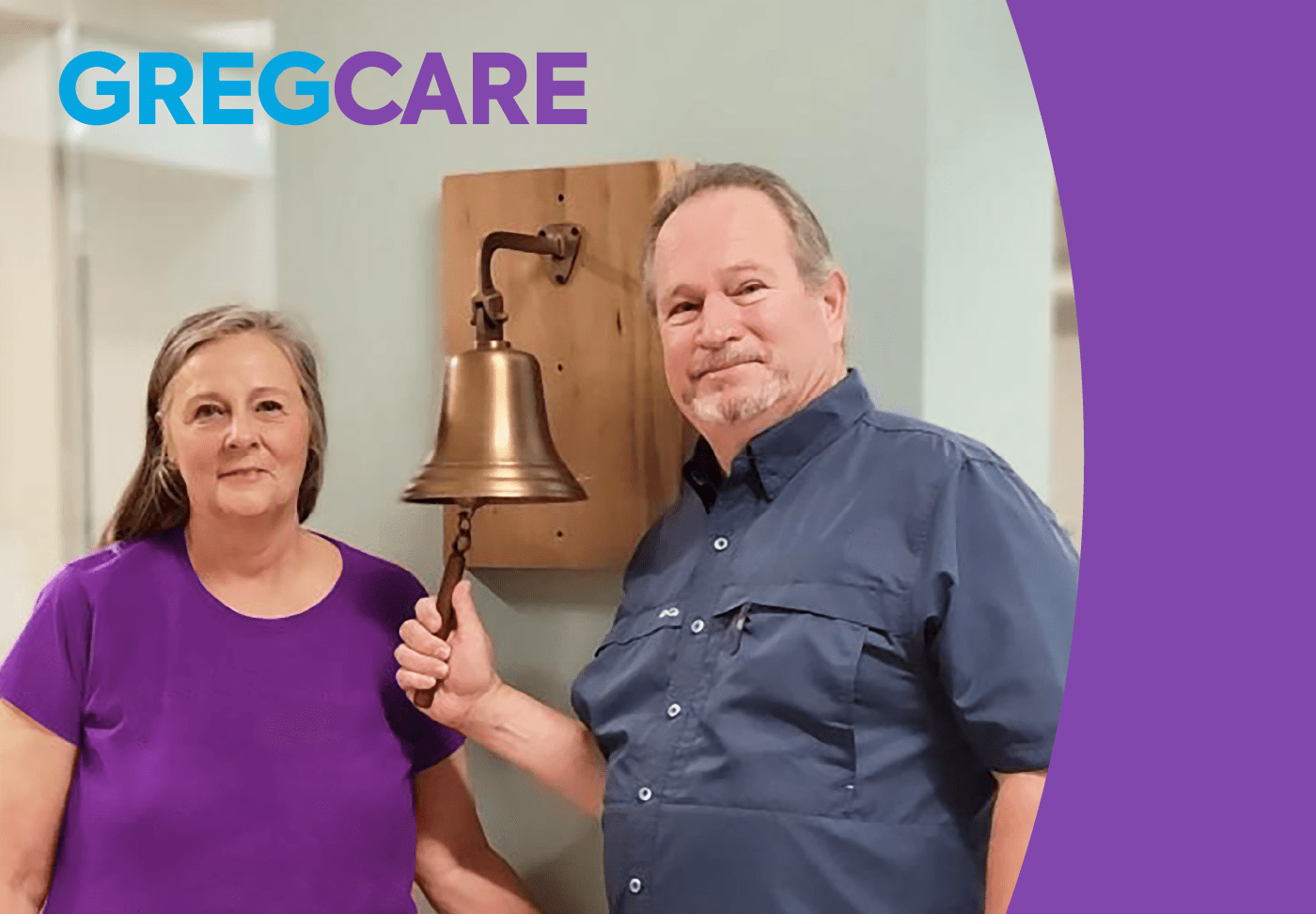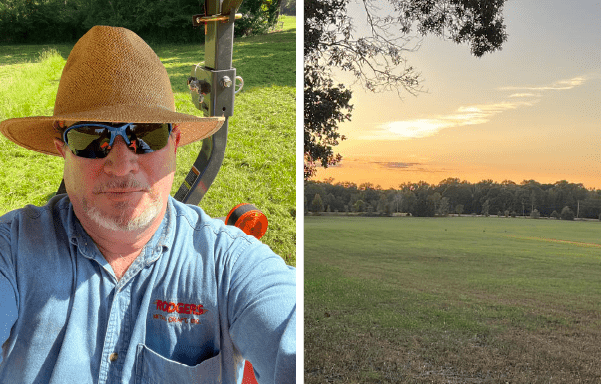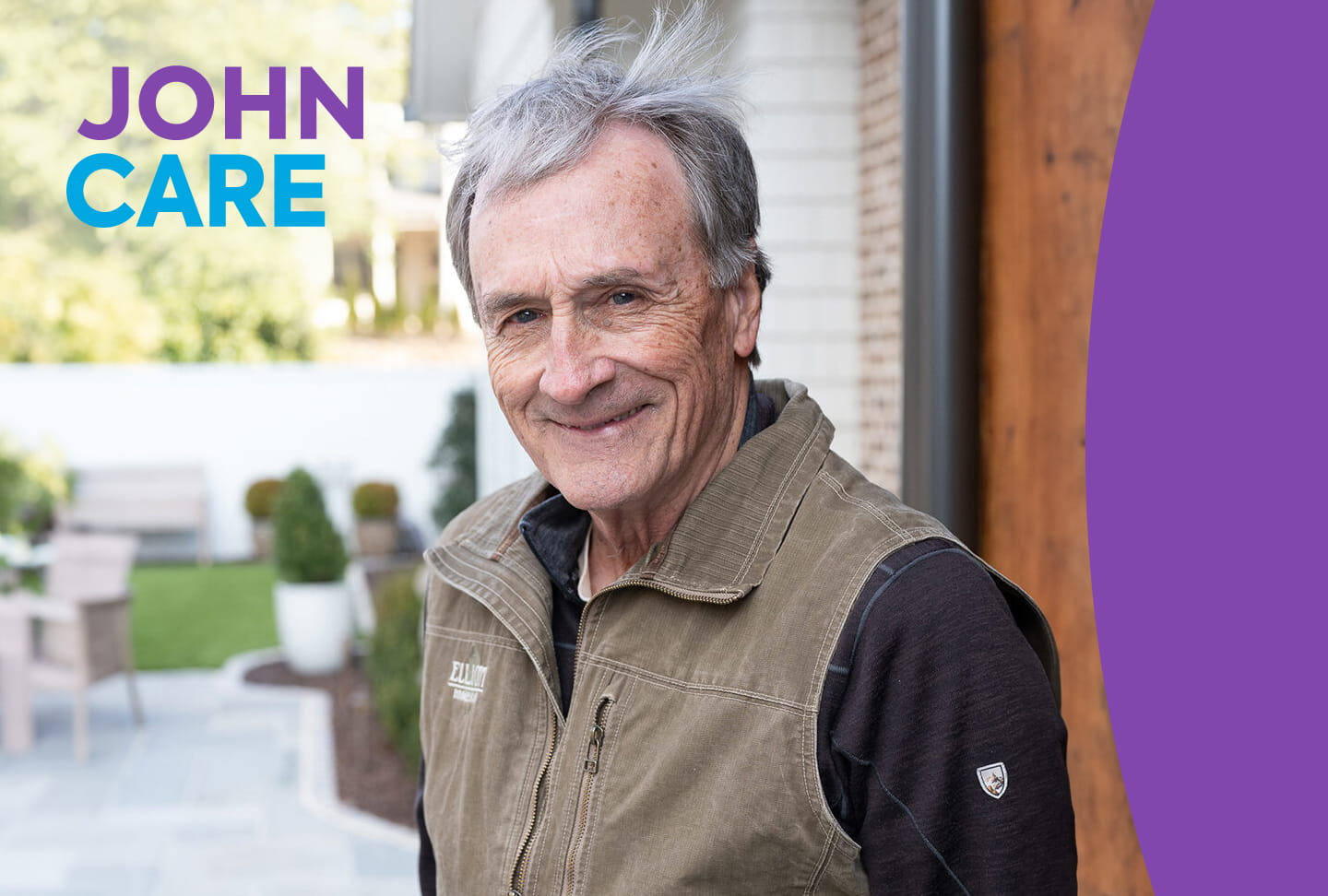De'sa Fuller, an assistant principal in West Georgia, greeted teachers in the hallway like every other morning. But her day turned upside down when she lost her balance and couldn’t rise from the floor. Thanks to the immediate actions of those around her—from the teacher who called 911 to emergency medical services and her Wellstar team—De’sa recovered and is back to school. Her story is a powerful testament to how recognizing symptoms of a stroke, calling for help right away and having highly coordinated care can lead to remarkable outcomes.
Getting help when things go wrong
At 34, De'sa Fuller was living a vibrant life. She was a 6th grade assistant principal at Gardner Middle School in LaGrange. She loved her job, enjoyed traveling and was saving up to buy her first home. April 15 started out like any other day. Smoothie in hand, she greeted teachers in the hallway as she made her way to her office.
“I felt a little off,” De'sa recalled. “I just thought I was going too fast—I didn’t put much thought into it.” Then she fell. A concerned teacher asked if she was okay. De'sa, thinking she had simply tripped, said “Yes.” Her vision blurred as she tried to get up and she fell again. “I said, ‘I am not okay.’”
What began as a typical morning turned into a race against time. One teacher's quick thinking to call 911 activated a rapid chain of events that would save De’sa from permanent disability.
The critical first minutes
“The ambulance got there quickly. It was like they were around the corner,” De'sa remembered.
“We got a call that EMS was bringing in a female who had been found on the floor at work, experiencing right-sided weakness,” explained Ginger Truitt, stroke coordinator at Wellstar West Georgia Medical Center, a Primary Stroke Center. The EMS professionals also reported confusion, headache and vomiting. “Those symptoms suggest stroke. We activated quickly.”
As a result, Dr. Reginald “Ashley” Orr, an emergency medicine physician, was ready for her arrival.
“I was worried about an acute stroke by their description of her symptoms,” he remembered. “I evaluated her on the stretcher when she came through the door.”
A Code FAST was called with the goal of speeding up the time to start treatment to improve De’sa’s chances for better outcomes. They skipped the emergency department and took her for a CT scan. Then she was seen by the onsite neurologist, and the team quickly administered tenectoplase—or TNK—a clot-busting drug.
“Her symptoms were markedly improved,” Dr. Orr noted. “She was more awake.”
However, the CT angiogram showed an MCA M1 occlusion—a blockage in a major blood vessel in the brain. While she had shown some improvement, it wasn’t enough. De'sa needed a thrombectomy, a procedure to remove the clot and restore vital blood flow to the brain.
A seamless transfer
De’sa needed an immediate transfer to a thrombectomy center, and there are only a few in the state of Georgia. After a quick virtual consult with Dr. Ovais Inamullah, a telestroke neurologist at Wellstar Kennestone Regional Medical Center—a Comprehensive Stroke Center—she was accepted for transfer. The Marietta-based Neuro Care program performs one of the highest volumes of thrombectomy and aneurysm treatments in the country.
Because time is of the essence with successful stroke treatment, transport by air is preferred. However, weather conditions threatened the flight’s safety. The ground EMS crew dutifully stood by in case they needed to drive De’sa.
Mercifully, the clouds lifted after a few tense moments and she began her trip to Wellstar Kennestone via helicopter.
“When we have this type of emergency, our goal is to get patients out the door for a thrombectomy in 90 minutes,” Ginger said. “In De’sa’s case, we did it in 102 minutes, which was still impressive because there was cloud cover and we weren’t sure at first if she would be able to fly.”
Upon arrival, De'sa was taken directly to the angio suite where Dr. Ahmad Khaldi, a Wellstar neurosurgeon, and his team were waiting. “Every minute counts,” he emphasized.
A thrombectomy is a procedure that treats a stroke without open brain surgery. A tiny catheter is threaded through a blood vessel in the arm or leg to the brain to remove a clot, restoring blood flow to help prevent permanent disability or even death.
“We finished surgery by 11:25 AM,” Dr. Khaldi said—just 20 minutes after the procedure began.






